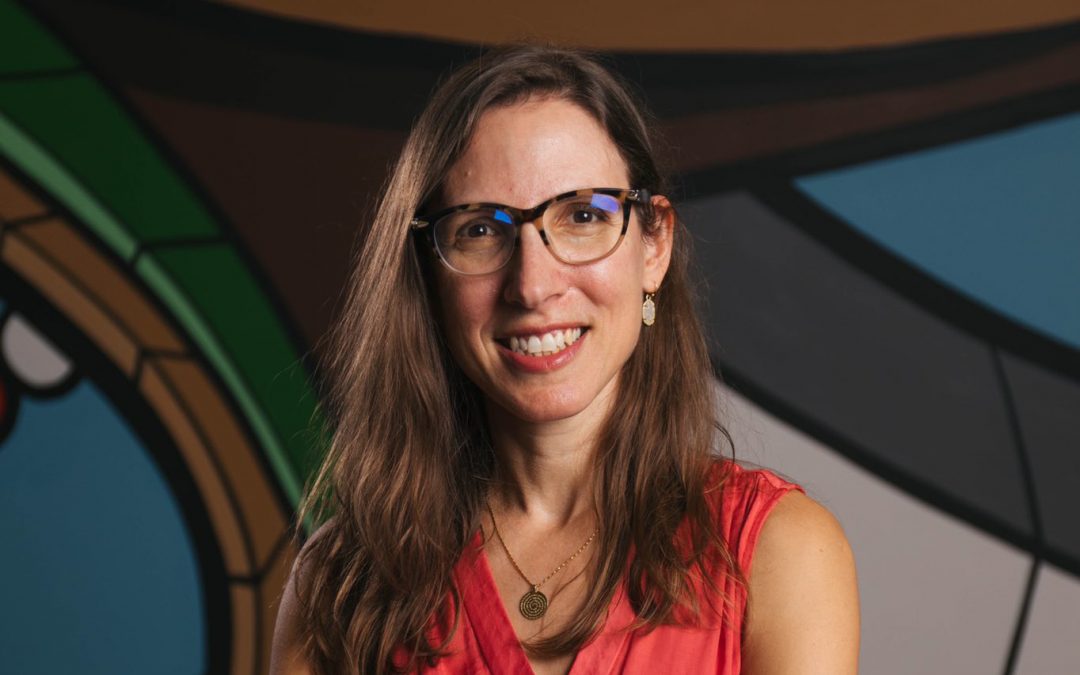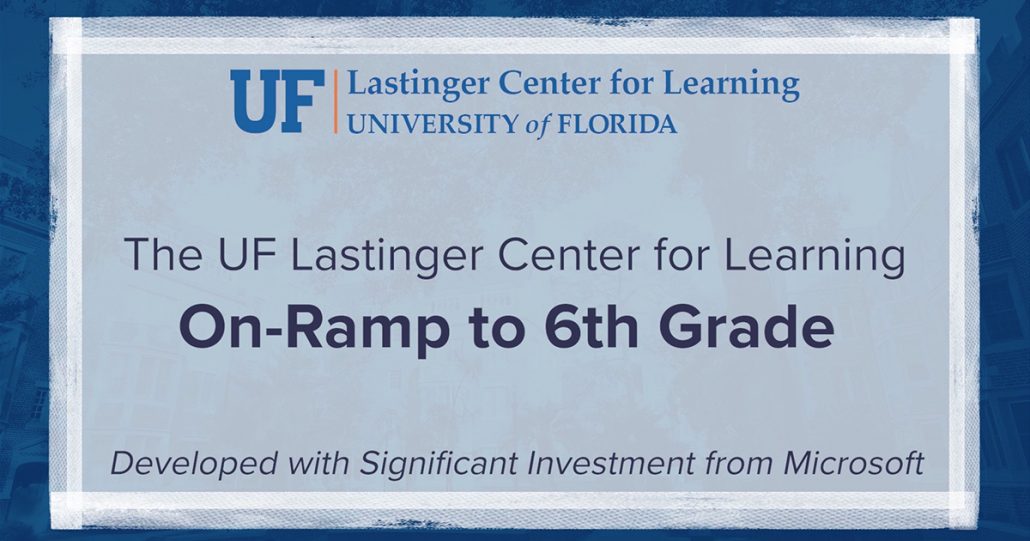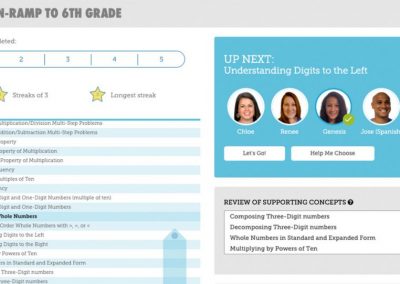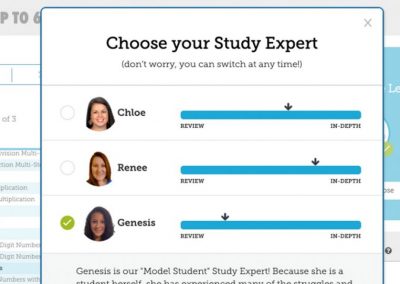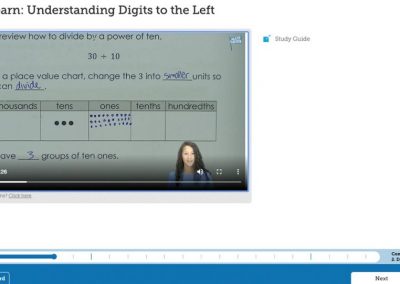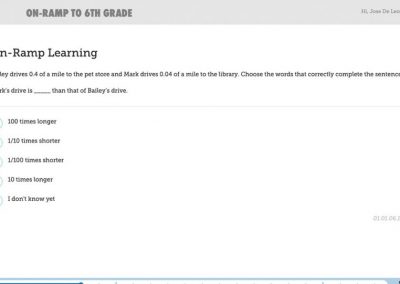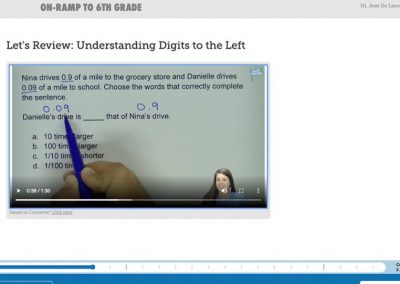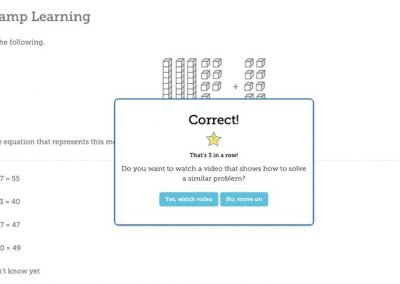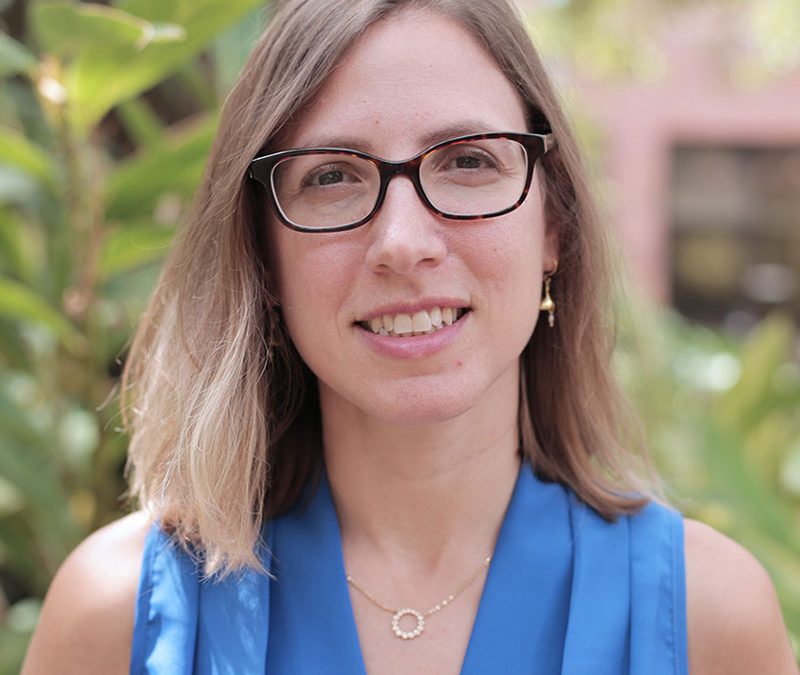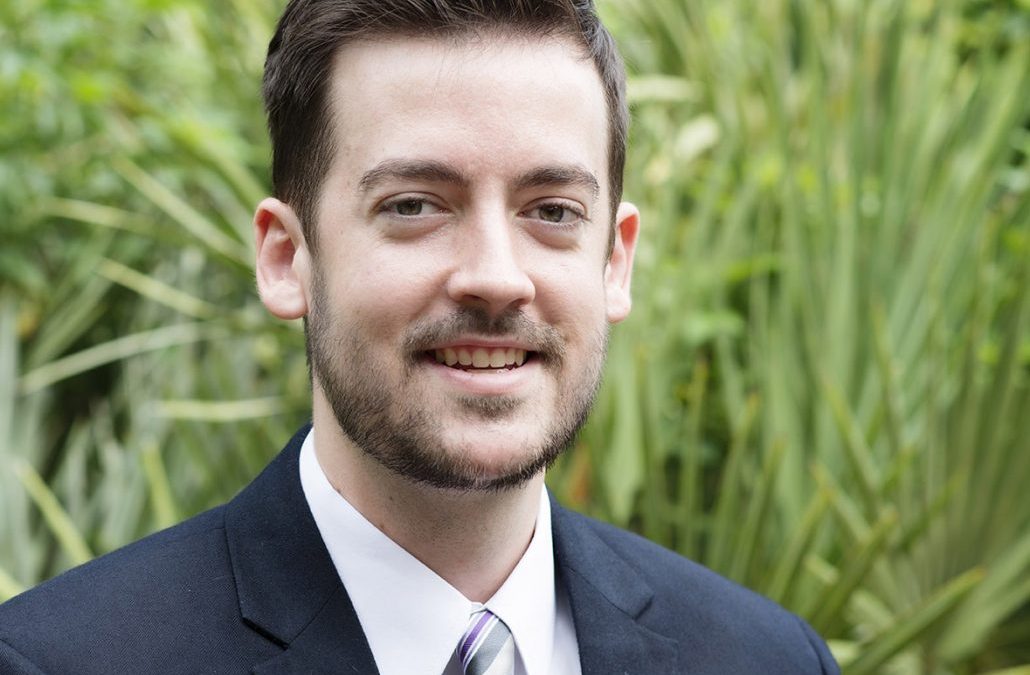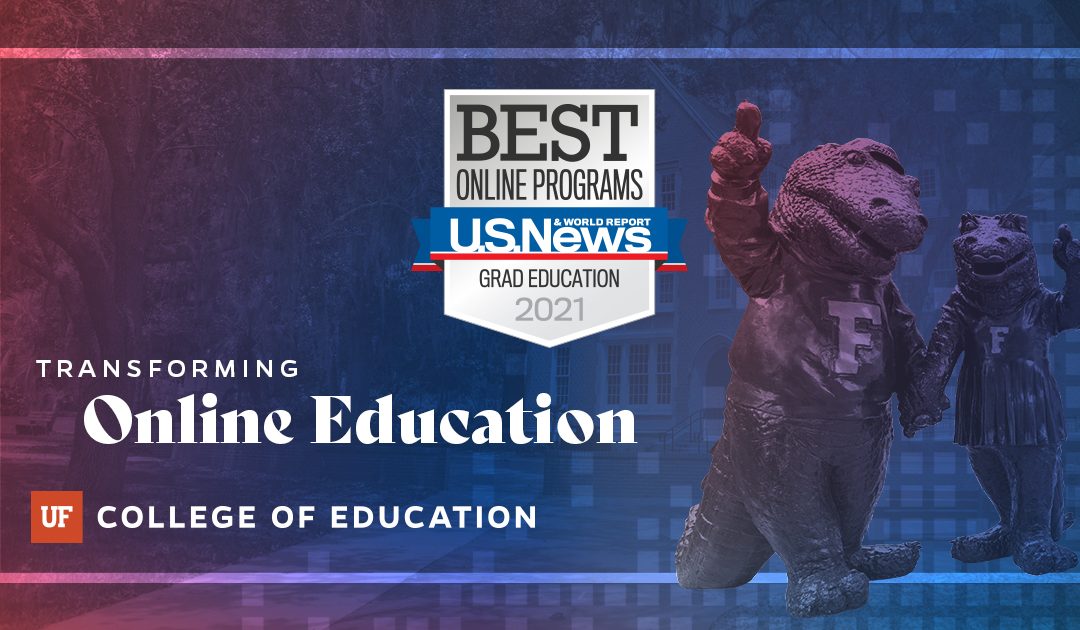
UF College of Education is Number 1 in the Nation

The College of Education at the University of Florida continues its six-year tradition of being a national leader in online graduate education. Again this year, UF is the nation’s top online graduate education degree program according to the 2021 Best Online Programs rankings released by U.S. News & World Report.
UF earned the No. 1 spot nationally out of 296 other colleges of education for online graduate degree programs. The college has earned the top rank four of the last six years (2016, 2017, 2019 and 2021), dipping only one spot in 2018 and 2020.
Students’ experiences and outcomes are continually being enhanced through faculty embracing the research and best practices identified by scholars associated with the college’s Educational Technology program, Institute for Advanced Learning Technologies, and new Artificial Intelligence in Education initiative.
“This ranking reflects acknowledgement by higher education leaders across the country that we have exceptional students, develop and apply engaging methods of instruction, and employ superb faculty and staff well trained in supporting the needs of students at any stage of their careers,” said Tom Dana, senior associate dean and director of the Institute for Advanced Learning Technologies.
Specialty Area Rankings
Last year, U.S. News began ranking specialty areas of Curriculum and Instruction, Educational Administration and Supervision, Special Education and Educational/Instructional Media Design, “to help guide prospective students who have particular interest in pursuing a degree or coursework with one of these focuses.”
These specialty area rankings are based on peer assessment of academic reputation. Eligibility requirements include the institution having “received at least five ratings from peer institutions, been ranked in the main online master’s in education rankings, and verified in the peer assessment they offer the specialty or else had this verified by U.S. News.”




The college was recognized as leaders in all of these specialty areas, with the following rankings:
- No. 2 – Special Education
- No. 3 – Educational Administration
- No. 3 – Curriculum and Instruction
- No. 6 – Instructional Media/Educational Technology
“Our extraordinary faculty collaborate with ever-increasing effectiveness to provide the highest caliber of engaged educational experiences for our online students,” said College of Education Dean Glenn Good. “Faculty are developing and studying learning technology innovations.
“It is natural that their discoveries become incorporated into college-wide exceptional instructional practices. Ultimately, the successes of our online students have elevated the college’s academic reputation, which is recognized by our peers across the nation.”
The college has placed emphasis on a growing demand for online learning for years, as evidenced by continuous strong performance in rankings, and has developed a highly-skilled team of instructional designers, videographers and editors, web and graphic designers, and systems developers. The e-Learning, Technology and Communications team works in partnership with faculty and students to implement best practices and build learning environments that leverage emerging technologies and support learning objectives.
“Our expert faculty have worked closely with our instructional and graphic designers and videographers to continuously refine the online learning experience for our students,” said Jason Arnold, director of e-Learning, Technology and Communications. “We use the most current research and frequent student feedback to always improve so that we may create courses that truly prepare and empower students.”
According to U.S. News, a master’s degree in education can help further careers in teaching, instructional design and educational administration. Programs are ranked based on five general categories: student engagement (30 percent), student services and technology (20 percent), expert opinion (20 percent), faculty credentials and training (20 percent), and student excellence (10 percent).
“We are proud to have regained the No. 1 ranking,” Good said. “It is a direct reflection of the work our faculty and staff have done to provide our distance learners with an exceptional education.”
Testimonials
Alyson Adams, Ph.D.
Our online programs are not online simply for convenience; we purposefully design online programs for full time educators because we want their workplaces to become the laboratories for their learning. What they learn in their online classes is situated and connected to their daily work. Our students use practitioner research or inquiry to examine their contexts and make meaningful change for their students, teachers, leaders, families, and communities. They develop as educational leaders who disrupt the st atus quo and challenge systemic inequities in their contexts and beyond.
Alyson Adams, Ph.D.
Associate Director for Teaching and Teacher Education
Catherine G. Atria, Ph.D.
UF faculty, comprised of nationally known, experienced and successful school leaders and researchers, are approachable and available with a rich presence in their courses through the use of videoed lectures, robust discussion forums and experiential just-in-time learning activities. Synchronous opportunities exist within courses affording collaborative relationships with peers, instructors, and other content experts. Students are able to easily and quickly contact and connect with instructors via the course management system, video-conferencing, email and telephone.
Our program utilizes a cohort model with each group of newly accepted students progressing through coursework together. In this way, deep collegial peer relationships are formed transcending the program and continuing long after graduation.
Coursework in the program is designed using best practices in online instruction and relevant and up-to-date research on school leadership. We successfully bridge the gap between research and practice as students engage in experiential learning opportunities applicable to both their current work environment and future career endeavors.
Catherine G. Atria, Ph.D.
Program Coordinator, Educational Leadership Online M.Ed.
Magdalena Castañeda, Ph.D.
TLSI is a “job-embedded” online graduate program. This means everything students learn is directly related to their practice, no matter what their role is in education. Students make major shifts in their practice that demonstrate their development in the 3 TLSI goals: Teacher Leader, Teacher Researcher and Master Teacher.
The program helps teachers feel empowered to come out of their comfort zone to become leaders in their school living up to the program name, Teacher Leadership for School Improvement. Becoming leaders entails sliding their classroom doors open and sharing their practice and what they are learning in the TLSI graduate program. This is significant because enrolling in this graduate program benefits not just one teacher and one classroom but their colleagues and all students at their school. There is a mind shift in that it’s not just about my students and my classroom, but all students.
Magdalena Castañeda, Ph.D.
Program Coordinator, Teacher Leadership for School Improvement (TLSI)
Domenic Durante, M.Ed.
The College of Education is the meeting place between educational theory and instructional best practice with both our instructors and supporting instructional design team collaborating on the design of online courses that actively promote and create a community of practice.
Domenic Durante, M.Ed.
Senior Instructional Designer
Zhihui Fang, Ph.D.
Faculty in the Reading and Literacy education program has invested a considerable amount of time in identifying, recruiting, preparing, and graduating highly qualified candidates from the state, nationally, and internationally. Our enrollment is at a historic high. Our students benefit tremendously from a rigorous, flexible curriculum that addresses practical concerns of those “in the trenches” and a dedicated faculty that is knowledgeable, supportive, and accessible.
Zhihui Fang, Ph.D.
Program Coordinator, Reading and Literacy Online M.Ed.
Cliff Haynes, Ph.D.
The online program in Student Personnel in Higher Education focuses on the practical application of the competencies of student affairs educators while incorporating technology into every class. Our graduates have been using technology to build community and to learn and are able to be forward thinking when asked to perform their duties virtually or remotely.
Cliff Haynes, Ph.D.
Program Coordinator, Student Personnel in Higher Education (SPHE) Online M.Ed.
Daneen Johnson
Beyond the classroom, students in our online programs have access to career readiness resources including customized virtual career workshops, individual coaching sessions and career conversations designed to help create opportunities for students to feel empowered in their professional growth now and after graduation. These resources and programs are also infused into the curriculum for some of our online programs.
Daneen Johnson
Assistant Director for Integrated Partnerships – Education
Career Connections Center & College of Education
The Bachelor of Arts in Education Sciences is one of the college’s newer programs designed to establish a foundation of knowledge, to allow graduates to pursue a variety of careers in the field of education. New to the college’s bachelor offering are the Bachelor of Arts in Early Childhood and the Bachelor of Arts in Elementary Education. Both programs are set to launch in fall 2021.
For more information on the college’s distance learning program, visit online.education.ufl.edu.
Contacts
Source: Tom Dana, senior associate dean, UF College of Education, 352-273-4134
Source: Jason Arnold, director of e-learning, UF College of Education, 352-273-4442
Writer: Kevin Coulson, communications manager, UF College of Education, 352-273-4370

